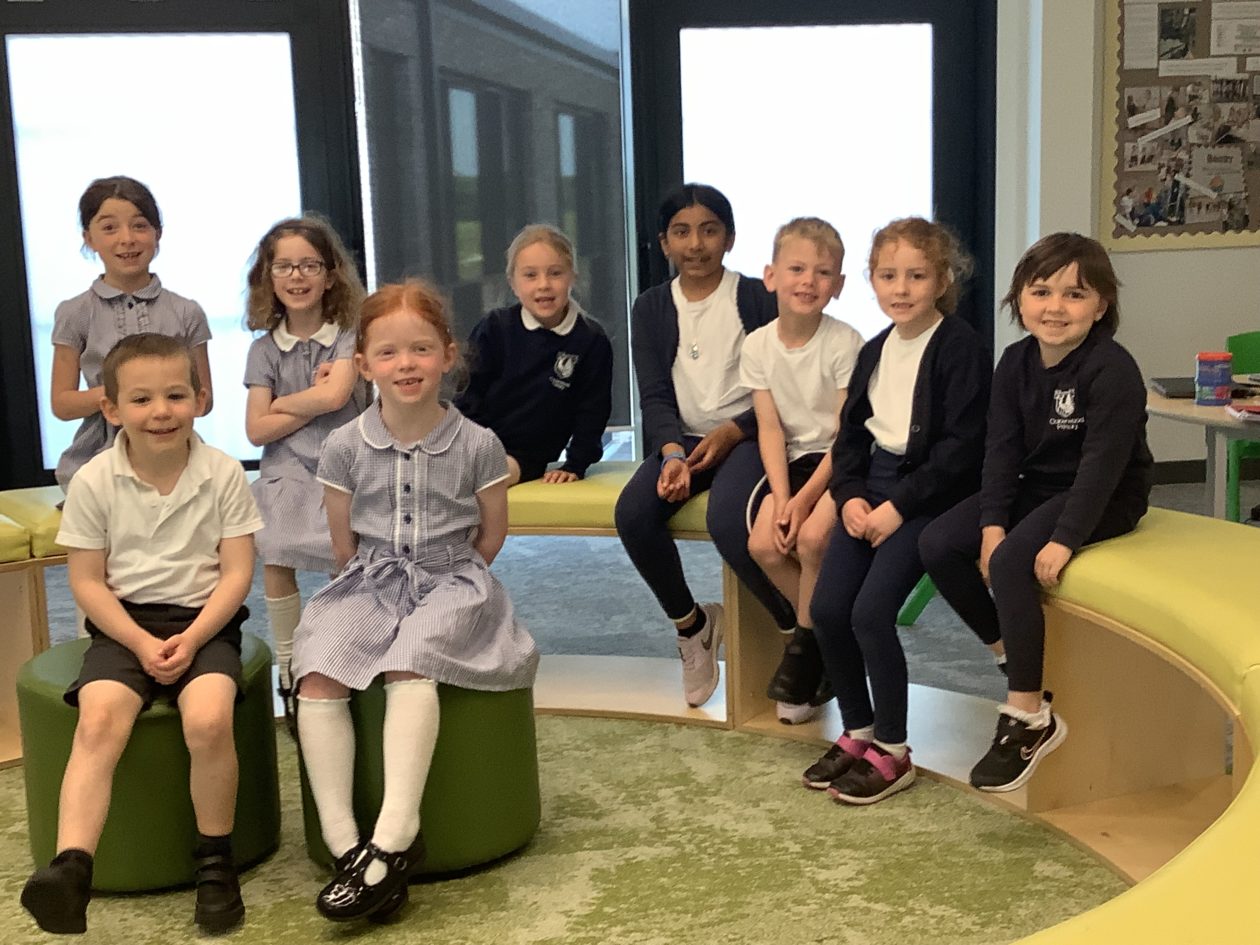Category: Calderwood Curriculum
Well done Calderwood Knicks!
Mrs Morrison and Mrs Robertson were so proud of our super basketball team ‘Calderwood Knicks’ when they played in the silver playoffs on Friday 26th May. From only forming our teams in October, to now making it into the playoffs, is a huge achievement that they should be proud off. We came 6th in the silver league and got in some tremendous baskets – even some of the professional players were impressed! Well done to all of you, we cannot wait to see how Calderwood basketball teams develop next year!
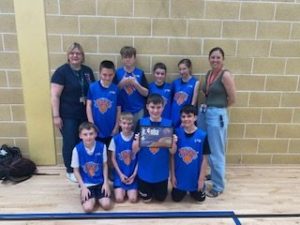
Calderwood Clan Championships 2023
Sports Day at Calderwood Social Story
Calderwood Clan Championships 2023
We are excited to hold our second annual sports day on Wednesday 24th May (weather permitting). If the event needs to be cancelled, we will groupcall you on Wednesday morning to inform you.
- 9:30 – 10:45: Primary 1, 2 and 7 children
- 11:15-12:30: Primary 3, 4, 5 and 6 children
This event will have three parts:
- Highland Games Competition: In house communities
- Clan Races: There will be two races per clan and they will be opt in
- Calderwood Chill Out: Arena – fruit and yoga
Families are invited along to the event, we would request that you limit guests to two adults per family. There will be an allocated area on the field and on the grass verge between the amphitheatre for spectators, please stay within these zones, there will be signage. Please use the Glencoe Gate to access the amphitheatre or accessibility access through the field. There will be no access to the toilets for spectators. As not all our children have photographic permission, we request that parents and carers do not take photos at this event, the champions will share photos.
On this date, children should wear their usual navy joggers/shorts, trainers and on top their house community colour:
- Sika – blue
- Red – red
- Fallow – green
- Roe – yellow
It would be fantastic if families could join in and wear their family house colour too!
Children should also remember their water bottle and wear suncream if the weather is sunny.
You can find a link to a social story here: Sports Day At Calderwood Social Story
On Friday 26th we will present the race and house winners with their awards.
Fundraising from Calderwood Magical Miles have helped to buy sports equipment for Sports Day and the house shield and race medals.
Ben Lawers Cross Country Event

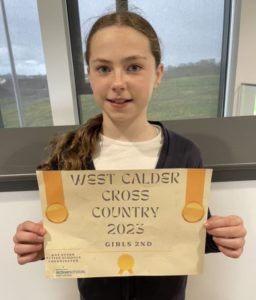
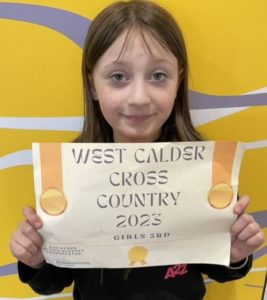
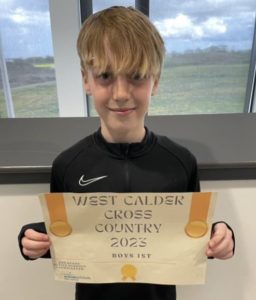
Our Ben Lawers Clan did us very proud at our most recent cross country event at West Calder High School, where we had four of the girls place within the top seven and three of our boys finishing withing the top five. We were up against other schools from our cluster and our girls winning, secured Calderwood Primary School girls team to represent West Lothian in the next cross country event. Huge congratulations to everyone that participated and did themselves proud.
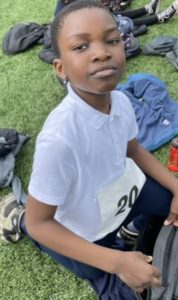
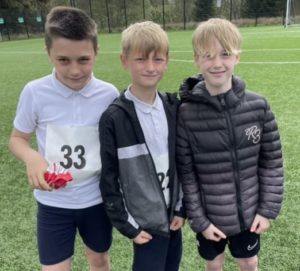
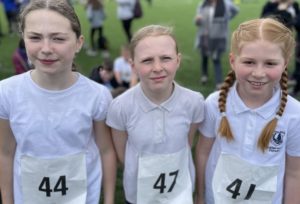
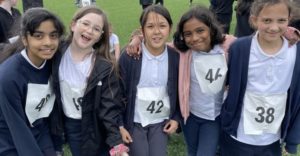
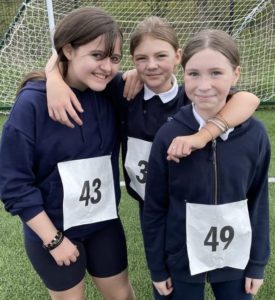
Well done Calderwood, next stop, the stars!!!
Primary Engineering – If You Were an Engineer What Would You Do?
Our nurturing spaces
This year, through the participatory budget, our children chose to buy items to design their own nurturing space within their clan. This is a safe space that would be accessible to all pupils when they need it. Some clans chose to create a sensory space, others chose to make a comfortable seating area. All nurturing spaces are used to support children to self-regulate, they chose items which were calming including lights, comfortable cushions, tents, and activities such as sensory/fidget toys or books.
Calderwood Choir
Our Calderwood Choir have had a fantastic year so far, performing at various events. They performed at various Christmas events such as the Nativity, Christmas Craft Fair and the switch on of the Calderwood Christmas lights. In Term 3, we performed a set of Scottish songs for the poetry recital and for our Calderwood Connects. The choir’s performance of ‘Caledonia’ was just beautiful and some emotional tears were shed from some audience members who were so moved by the rendition of this song.
The children have been requesting songs to sing at rehearsals and have enjoyed having a go at their favourites. The choir have now decided on the songs they wish to learn and perform and we will be working on these throughout the rest of Term 4, getting them performance ready for end of term events.
The choir continue to display commitment, dedication and motivation during rehearsals and performances and have developed their confidence to sing in front of our community. The children give it their all and the joy in singing is palpable.
We can’t wait to perform for you again this term.
In the meantime, have a look on twitter to hear some snippets of our performances.
Calderwood Basketball
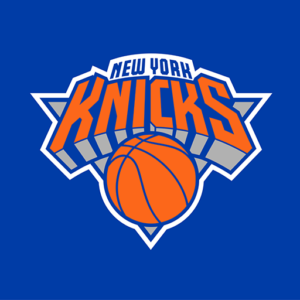
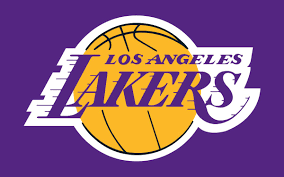
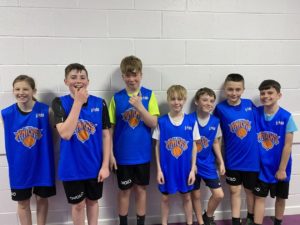
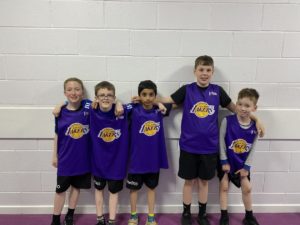
What a year it has been for our very first Basketball Teams. We have been lucky enough to have not just ONE but TWO teams competing this year – KNICKS & LAKERS
Mrs Morrison and Mrs Robertson have been so proud of how every team member has developed throughout this past year. We have demonstrated fantastic teamwork and an abundance of core basketball skills. Through participating in our conferences at WCHS and Armadale Academy, we have also been able to demonstrate excellent sportsmanship, resilience and utter determination.
Our Knicks have one final conference to attend and will hopefully progress onto the silver playoff weeks – GO KNICKS!
Thank you to all parents who have come along to support us over these past few months!
